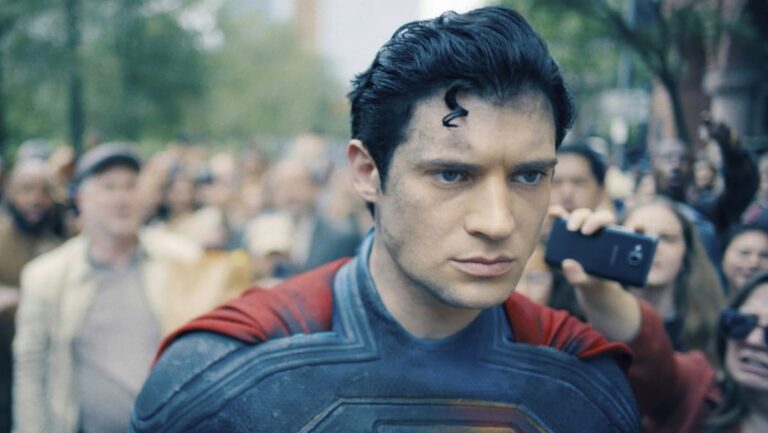Reasons Behind the Exodus of New Zealand Musicians from Spotify

Why Are New Zealand Musicians Leaving Spotify?
Prominent New Zealand artists, including Tiki Taane and The Bats, are increasingly distancing themselves from Spotify. What are the reasons behind their decisions to pull their music from the platform?
Tiki Taane, a major figure in the Aotearoa music scene, shared on social media that he has decided it’s time to exit Spotify. His final track on the service, titled “Bye Bye Spotify,” was released recently.
He is not alone; several other artists are following suit, such as The Bats, a band associated with Flying Nun Records, and others who have collectively announced their withdrawal through the Boycott Spotify NZ initiative.
In their statement, the artists expressed, “We refuse to be exploited by Spotify any longer.” They voiced concern that Spotify primarily treats its artists as free contributors, generating profits while returning a mere fraction to the creators, approximately 1/20th of a cent per stream.
Tamatha Paul, a Green MP for Wellington Central who also departed from Spotify as a customer, emphasized her worries about the treatment of New Zealand’s creative talent. “Local artists are not receiving their fair share of royalties from Spotify,” she pointed out. “Subscribers in New Zealand are essentially subsidizing larger international musicians.”
More than a dozen Kiwi bands, including Carb on Carb and Synthetic Children, have joined the Boycott Spotify NZ movement, voicing their concerns over fair compensation.
What Are the Core Issues?
Dissatisfaction with Spotify’s streaming model has been growing among artists but has escalated recently. The two main grievances center around low payouts for artists and the platform’s increasing use of AI-generated music, such as the fictional band Velvet Sundown.
A pivotal moment came when it was revealed that Spotify’s CEO, Daniel Ek, had invested €600 million (approximately NZ$1.2 billion) into a European defense tech firm, Helsing. Helsing specializes in AI systems for military use, which has upset many musicians.
Tharushi Bowatte of the band Recitals questioned, “Why should our art fuel military sector investments?”
Paul Kean of The Bats echoed similar sentiments, stating that this news significantly influenced their decision to leave the platform. “We have contemplated this for a while, but the investment in military technology was the tipping point,” he noted.
Earnings on Spotify: Is It Viable?
The financial aspect of streaming is also a central issue. The Bats highlighted the minuscule amounts they received for their recordings, claiming that Spotify essentially “paid next to nothing.” Kean mentioned the early optimism around streaming’s potential revenue compared to physical sales, which quickly faded when it became evident that musicians were being shortchanged.
Josh Finegan from Recitals stated that their total earnings from all streaming platforms have been “less than $1000,” stressing the opaque nature of payment structures that complicate financial transparency for indie artists.
Spotify claims it pays artists through various royalties, yet the specifics remain vague. Many artists feel the platform favors bigger acts rather than nurturing smaller ones. “It’s a gamble,” Kean said, mentioning the possibility of going viral could result in more substantial earnings.
What Alternatives Exist?
Many musicians are turning to alternative platforms like Apple Music, TIDAL, and Bandcamp, which reportedly offer better returns. Kean expressed gratitude for Bandcamp, applauding its ability to host music sales with significantly higher earnings. He emphasized how fans engaging on Bandcamp feel more connected.
Bowatte noted that local support through merchandise and live gigs generates far greater income than what Spotify can provide. “The one-size-fits-all approach of Spotify has forced us into a race we never intended to join,” she said.
Taane shared his decision-making process online, emphasizing the need for diverse revenue streams to counterbalance leaving Spotify.
Musicians such as Taylor Swift and Neil Young have previously pulled their music from Spotify, sparking discussions about artist royalties and platform practices. Nevertheless, some industry insiders warn that notable exits may not lead to systemic change.
Kean mentioned they’ve received positive feedback since announcing their departure, reflecting growing public support for musicians navigating these challenges.
Are Streaming Services Truly Beneficial?
Many artists express skepticism over the sustainability of streaming services like Spotify. “There’s a crucial discussion about the role of streaming in a future where artists can thrive,” Finegan stated.
Bowatte highlighted the need for better regulatory frameworks to protect artists against advancing AI and foreign tech companies. Paul also criticized other platforms for mimicking exploitative tactics, noting that fans must demand change and better compensation for artists.
As New Zealand musicians voice their frustration, it raises an important question for fans: How can consumers support their favorite artists without relying solely on mainstream streaming services?




